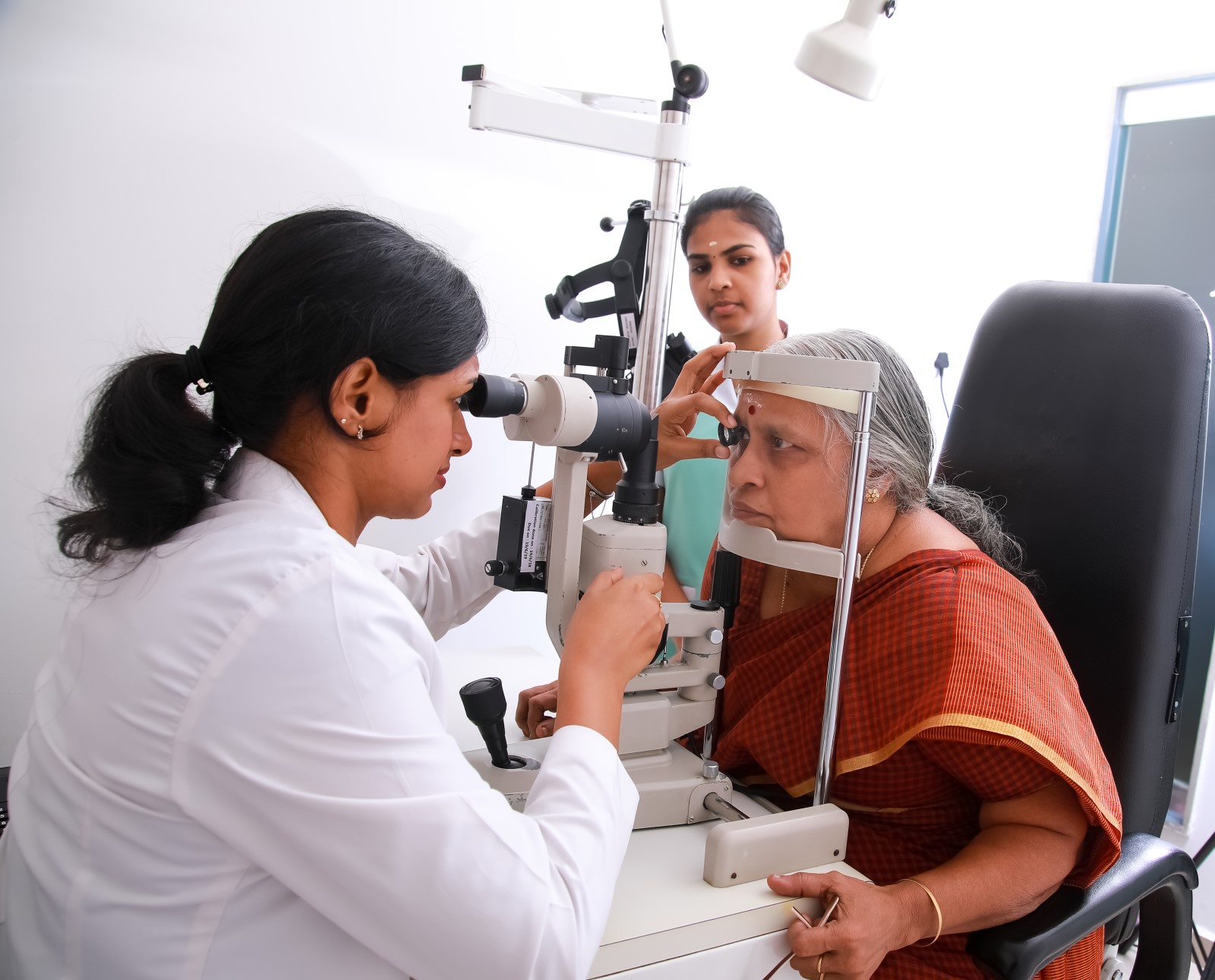
What is Cataract Surgery ?
Cataract surgery is an operation to remove your eye’s lens when it is cloudy. The purpose of your lens is to bend (refract) light rays that come into the eye to help you see. Your own lens should be clear, but with a cataract it is cloudy. Having a cataract can be like looking through a foggy or dusty car windshield. Things may look blurry, hazy or less colorful.The only way to remove a cataract is with surgery. Your ophthalmologist will recommend removing a cataract when it keeps you from doing things you want or need to do. During cataract surgery, your cloudy natural lens is removed and replaced with a clear artificial lens. That lens is called an intraocular lens (IOL). Your ophthalmologist will talk with you about IOLs and how they work.
Ivision CATARACT & IOL CLINIC Speciality
1) Deals with all modern cataract surgeries including clear corneal Phacoemulsification with foldable intraocular lens implantation including Multifocal and Toric IOL. 2) No pain, no injection cataract surgery. 3) Day care facilities. 4) YAG laser capsulotomy. 5) ICL surgery to get rid of spectacles.
Before surgery:
Your ophthalmologist will measure your eye to set the proper focusing power for your IOL. Also, you will be asked about any medicines you take. You might be asked not to take some of these medicines before surgery. You may be prescribed eyedrop medicines to start before surgery. These medicines help prevent infection and reduce swelling during and after surgery.
The day of surgery:
Your ophthalmologist may ask you not to eat any solid food at least 6 hours before your surgery. Cataract removal surgery may be done in an outpatient surgery center or in a hospital. Here is what will happen: 1) Your eye will be numbed with eye drops or with an injection around the eye. You may also be given a medicine to help you relax. 2) You will be awake during surgery. You may see light and movement during the procedure, but you will not see what the doctor is doing to your eye 3) Your surgeon will enter into the eye through tiny incisions (cuts, created by laser or a blade) near the edge of your cornea (the clear covering on the front of your eye). The surgeon uses these incisions to reach the lens in your eye. Using very small instruments, he or she will break up the lens with the cataract and remove it. Then your new lens is inserted into place. 4) Usually your surgeon will not need to stitch the incisions closed. These “self sealing” incisions eventually will close by themselves over time. A shield will be placed over your eye to protect it while you heal from surgery. 5) You will rest in a recovery area for about 15–30 minutes. Then you will be ready to go home.
Cataract Surgery Recovery
Days or weeks after surgery: You will have to use eye drops after surgery. Be sure to follow your doctor’s directions for using these drops. Avoid getting soap or water directly in the eye. Do not rub or press on your eye. Your ophthalmologist may ask you to wear eyeglasses or a shield to protect your eye. You will need to wear a protective eye shield when you sleep. Your ophthalmologist will talk with you about how active you can be soon after surgery. He or she will tell you when you can safely exercise, drive or do other activities again.
Frequently Asked Questions ?
Many patients comment on how surprised they are of not feeling pain with their LASIK surgery. Anesthetic drops are used to fully numb the eye before LASIK eye surgery begins; during the laser correction you may feel a light pressure sensation around your eye. Prior to surgery you may be given a mild sedative to help you relax. After your laser eye surgery, your eye may feel a bit irritated for a few hours, but most patients are quite comfortable after taking a short nap. You will be prescribed drops for your eyes to provide comfort and healing in the days following your surgery.
There are some minimal restrictions in the first weeks following laser surgery, but many LASIK patients are able to resume normal activities the following day! Vision corrective results from LASIK surgery are typically very rapid and many patients are able to see clearly 24-48 hours after surgery. Further vision improvement may continue over several months. Your doctor will recommend avoiding certain activities, like swimming or contact sports for several weeks.
Yes. Most patients find it much more convenient to have both eyes treated on the same day.





©Microclouds 2018 . All rights reserved By Ivision Eye Hospitals.



